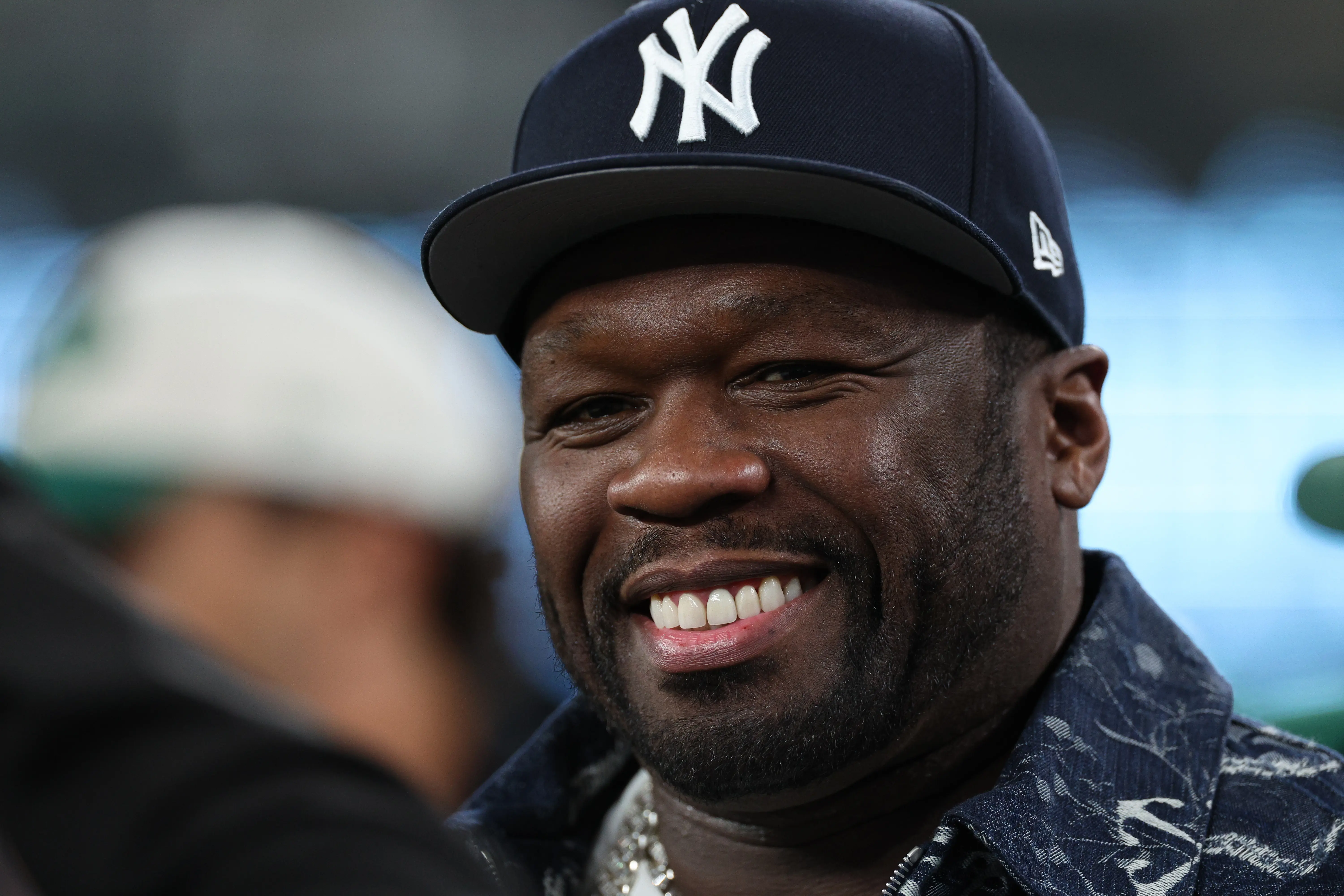Why was 50 Cent shot 9 times? Rapper opens up about how the incident changed his life and career
-
 EAST RUTHERFORD, NEW JERSEY - OCTOBER 14: Rapper 50 Cent is seen on the sidelines prior to the game between the Buffalo Bills and the New York Jets at MetLife Stadium on October 14, 2024 in East Rutherford, New Jersey. (Photo by Elsa/Getty Images)
EAST RUTHERFORD, NEW JERSEY - OCTOBER 14: Rapper 50 Cent is seen on the sidelines prior to the game between the Buffalo Bills and the New York Jets at MetLife Stadium on October 14, 2024 in East Rutherford, New Jersey. (Photo by Elsa/Getty Images)50 Cent recently reflected on the near-fatal 2000 shooting that left him with nine gunshot wounds, opening up about the thoughts that ran through his mind in the aftermath. In an interview on Fox News, the rap star looked back at a life-altering incident, sharing how it changed his way of seeing things. When asked if he thought of going back to music then, 50 said his initial focus was not his career.
The 2000 shooting became the defining moment of 50 Cent's career
If there's one story most people recall about 50 Cent, even those unfamiliar with his music, it's the near-fatal shooting that left him with nine gunshot wounds in 2000 outside his grandmother's home in Queens, New York, reportedly in a hit ordered by drug lord Kenneth 'Supreme' McGriff.
The gunman, Darryl 'Hommo' Baum, opened fire, leaving 50 with wounds to his legs, hand, chest, and face. He survived the ordeal with months of recovery.
He said it was a source of his toughness, and it had become an integral aspect of his hip-hop ascendancy.
The main cause of 50 Cent being shot nine times is said to be a fight with drug lord Kenneth 'Supreme' McGriff.
50 Cent used to be part of the Queens street life, and the shooting was thought to be an attempt to end his life over fights tied to that scene before he turned into a full-time rapper.
Yet, what could have ended his career before it began instead became a defining part of his image. For many who listen to him, the ordeal added raw authenticity to his lyrics and persona.
Years later, in a talk with Oprah Winfrey, 50 Cent said this scared him at first, but then made him strong.
This change in him gave him the tough spirit and staying power that helped him rise in hip-hop. He also mentioned that the man who shot him is behind bars. He said:
"It doesn't hurt as much as people imagine it hurts - because of the adrenaline. But it hurts after... Going through that experience, when you get hurt that bad, either your fear consumes you or you become a bit insensitive. There was a point where I was afraid... and then in the recovery process, I got tired of being afraid. The only way to cover those emotions was to be a bit more aggressive. And to be angry about the situation, opposed to how I was actually feeling at that point."
50 Cent rebuilt his career from the ground up, using street tactics to get his music heard
After surviving a near-fatal shooting in 2000, 50 Cent had to build up both his health and his work life again. This was a time when there were no easy ways to reach fans online.
Looking back, the rapper said that music firms stopped taking his calls, leaving him to figure out his own way. He said:
"I wasn't thinking about a CD. As soon as you feel fine, the doctors are telling you you're fine, you're going to recover and you look and you go, 'Whoa, what am I going to do?' The record company is not answering the phone anymore, everything is changing, and then it's like you got to figure out how to do it on your own."
With no YouTube or iTunes yet, 50 used a different plan, giving out his music to people who sold it on the streets.
This move not only changed how he handled promotions but also reshaped the plans for his first big album.
It was meant to be Power of a Dollar, but it turned into the game-changing Get Rich or Die Tryin'. He further said:
"We were in a different climate, so I couldn't do anything that the new artists can do. They go record and upload music to YouTube and Apple iTunes... I had to trick bootleggers into thinking to steal it so they could reproduce it and distribute it for me, 'cause there were no other outlets to get it out."
Keep reading PRIMETIMER for more informative content!
TOPICS: 50 Cent
- 50 Cent urges people to "escape" New York and go to Shreveport instead after Zohran Mamdani's win
- 50 Cent posts a photo of a tombstone saying "RIP NYC" after Zohran Mamdani's mayoral win
- "Boomer rappers discovering AI music" - Internet reacts to 50 Cent using AI on all his unreleased songs and sharing the results
- Dave Blunts records a new song accusing Kanye West of trying to groom him, days after pleading with him to "find God"